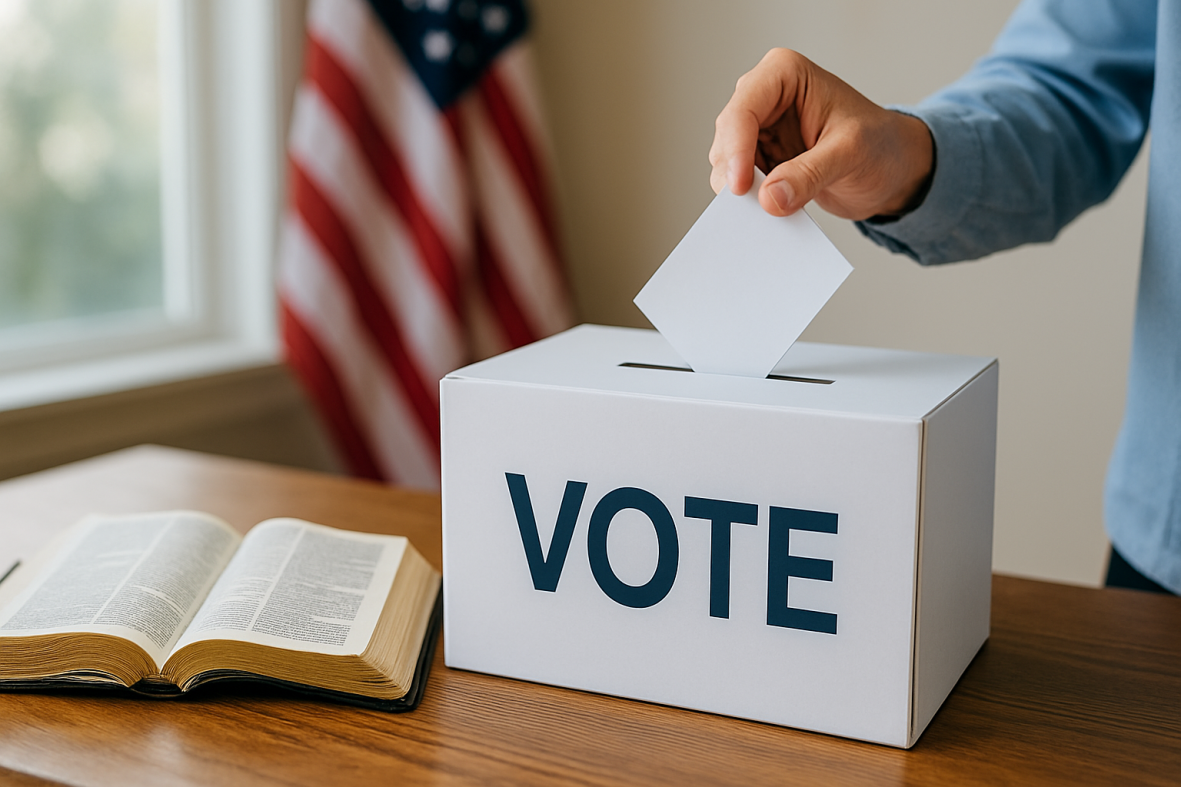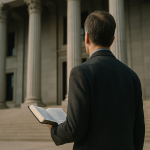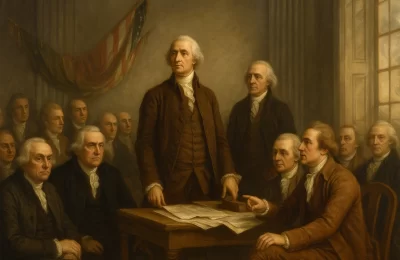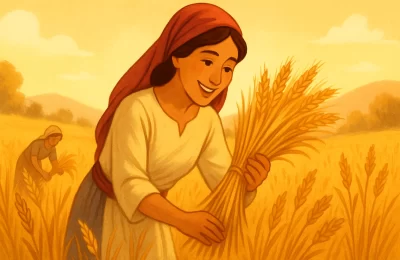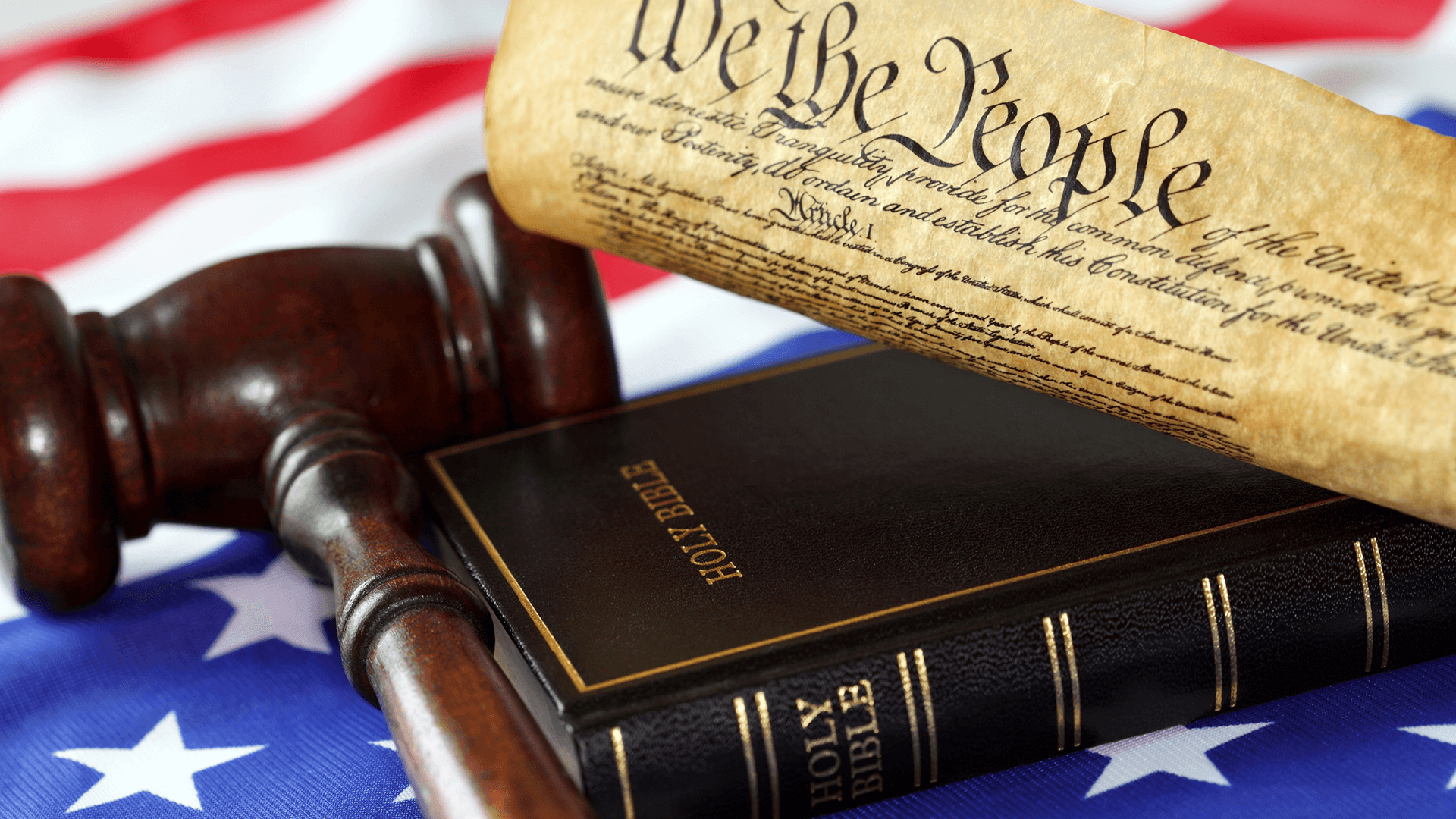Series: The Church and Public Policy
Scripture Focus: Jeremiah 29:7
In 597 B.C., Jerusalem was in ruins and God’s people were carried off to Babylon. Exiles, strangers, and captives, they might have expected God to tell them to wait it out in despair. Instead, through Jeremiah, the Lord gave a surprising command: “Seek the welfare of the city where I have sent you into exile, and pray to the Lord on its behalf; for in its welfare you will have welfare” (Jer. 29:7).
That instruction shapes how Christians think about civic life today. We are not home. Paul calls us “citizens of heaven” (Phil. 3:20). Peter describes believers as “sojourners and exiles” (1 Pet. 2:11). Yet while we wait for the return of Christ, we live in earthly cities, under earthly governments, among neighbors who need both justice and the gospel.
In democratic societies, one of the simplest ways to “seek the welfare of the city” is through voting. Casting a ballot is not the ultimate expression of faith, nor is it the Church’s mission. But it is a form of stewardship — a way to pursue the common good, to uphold justice, and to love our neighbors by helping shape the policies that affect their lives.
The question is not whether Christians should vote, but how we should vote. What does it mean to approach the ballot box with a biblical worldview?
Jeremiah’s letter to the exiles was not what Israel expected. After Jerusalem’s fall, false prophets promised a quick return home. Instead, God told His people to settle in for the long haul. They were to build houses, plant gardens, raise families, and—most surprisingly—seek the welfare of Babylon, the very nation that had conquered them (Jer. 29:4–7).
The Call to Seek the Welfare of the City
The word translated “welfare” is shalom—a rich Hebrew term that means peace, wholeness, and flourishing. God called His people to pray for Babylon’s peace and to work for its good. Their welfare as exiles was tied to the welfare of their city. This was not assimilation into pagan culture, nor withdrawal from it. It was faithful presence.
The Pattern of Exile
This theme continues throughout Scripture. Peter calls believers “sojourners and exiles” (1 Pet. 2:11), reminding us that our ultimate citizenship is in heaven (Phil. 3:20). Yet exile is not passive waiting. Exiles shine as lights in a dark world (Phil. 2:15). They are ambassadors for Christ (2 Cor. 5:20), representing the kingdom of God while living under the kingdoms of men.
The Stewardship of Influence
In democratic societies, one of the practical ways Christians can seek the welfare of their city is through voting. Casting a ballot is not an act of ultimate hope—salvation does not arrive on Air Force One—but it is an act of stewardship. Just as we steward our finances, families, and vocations for God’s glory, we also steward our civic responsibilities.
Voting with a biblical worldview means measuring policies and leaders not by personal comfort or party loyalty but by principles rooted in Scripture: the sanctity of life (Ps. 139:13–16), the value of truth (Eph. 4:25), the pursuit of justice (Mic. 6:8), the preservation of marriage and family (Gen. 2:24), and the protection of religious liberty (Acts 4:19–20).
The Balance of Hope and Realism
Christians must hold voting in balance. On one hand, to abstain carelessly is to neglect a tool God has placed in our hands to love our neighbor. On the other hand, to idolize politics is to forget that our hope rests not in kings, presidents, or policies but in the King of kings. Jeremiah’s word to the exiles reminds us that the welfare of our city matters—but so does remembering that Babylon was not their home.
The same is true for us. We vote as citizens of heaven seeking the good of our earthly city, knowing that the ultimate government will rest on Christ’s shoulders alone (Isa. 9:6).
Seeking the welfare of the city is not just a slogan. It requires practical choices. In our context, one of the ways Christians seek the good of their community is through civic engagement, including voting.
In 2025, the U.S. Supreme Court decided Mahmoud v. Taylor, a case where parents challenged mandatory LGBTQ-themed lessons in public schools. The Court ruled that parents had the right to opt their children out, affirming both religious liberty and parental authority. Whatever one thinks of the broader cultural debates, this ruling highlights a biblical principle: parents bear primary responsibility for the nurture and formation of their children (Deut. 6:6–7; Eph. 6:4).
This case illustrates how Christians can seek the welfare of their city without confusing politics with the gospel. Supporting policies that protect family, conscience, and freedom of worship is not about imposing faith by law; it is about ensuring space for faith to flourish. A healthy society benefits when families are strong, truth is honored, and liberty is preserved.
Yet we must also be careful. Voting with a biblical worldview does not mean baptizing one political party or putting our hope in legislative victories. It means weighing issues in light of God’s Word and stewarding influence for the sake of our neighbors. Sometimes this will mean celebrating rulings that defend parental rights. Other times it may mean lamenting policies that erode truth or dignity. In every case, our measure is Scripture, not party loyalty.
Jeremiah told the exiles to pray for Babylon, not because Babylon was righteous, but because their lives were bound up in the city where God had placed them. In the same way, our ballots are one way of seeking the good of our communities, even though this world is not our final home.
For many Christians, voting feels distant from discipleship. It happens once every few years, sandwiched between campaign ads and political noise. Yet Jeremiah’s call to “seek the welfare of the city” reminds us that even occasional acts of civic engagement are part of our stewardship before God.
Voting with a biblical worldview is not about finding a “perfect candidate.” No such person exists. It is about asking better questions: Which policies will uphold life? Which leaders will preserve space for the gospel to be proclaimed freely? Which decisions will allow families, churches, and communities to flourish in peace? These questions are not partisan—they are rooted in love of neighbor.
The danger comes when we either withdraw completely or place our ultimate hope in the ballot box. Disengagement says, “This world doesn’t matter,” while political idolatry says, “This world is all that matters.” Both miss the balance. The disciple of Christ is called to live faithfully in exile—present, engaged, and prayerful—while keeping ultimate allegiance fixed on the kingdom that cannot be shaken.
Practically, this means preparing your heart before you prepare your ballot. Pray for wisdom. Ask God to guard you from fear, anger, or compromise. Then vote not as a partisan first, but as a Christian steward, seeking the good of your community while remembering that Christ alone is King.
Voting is not the pinnacle of discipleship, but it is one of the ways we steward influence for the good of our neighbors. The challenge is to approach it prayerfully, not passively.
This week, take three steps:
- Pray for wisdom. Ask God to shape your mind and heart by His Word before you step into the voting booth.
- Study the issues. Don’t rely only on headlines or party platforms. Weigh policies through the lens of Scripture: life, truth, justice, family, and freedom.
- Engage with humility. Speak about politics in a way that reflects Christ. Let respect and grace mark your conversations, even when you disagree.
You cannot control election outcomes, but you can control the posture of your heart. Seek the welfare of your city, and let your participation reflect the hope you have in Christ, not in political saviors.
Series Navigation
- Previous Post (Aug 19): When Caesar Demands Worship: Faithful Disobedience (Acts 5:29)
- Next Series (September): Education and Worldview Formation
- View All: Facing the Issues: A Christian Worldview for a Confused Age
Takeaway Truths
- We are exiles. Our true citizenship is in heaven, yet God calls us to seek the good of our earthly city.
- Voting is stewardship. Casting a ballot is one way we love our neighbor and pursue justice, truth, and freedom.
- Christ is King. Our hope is not in elections or parties but in the Lord who reigns above every nation.
Live it out. Share the truth. Walk with courage.



